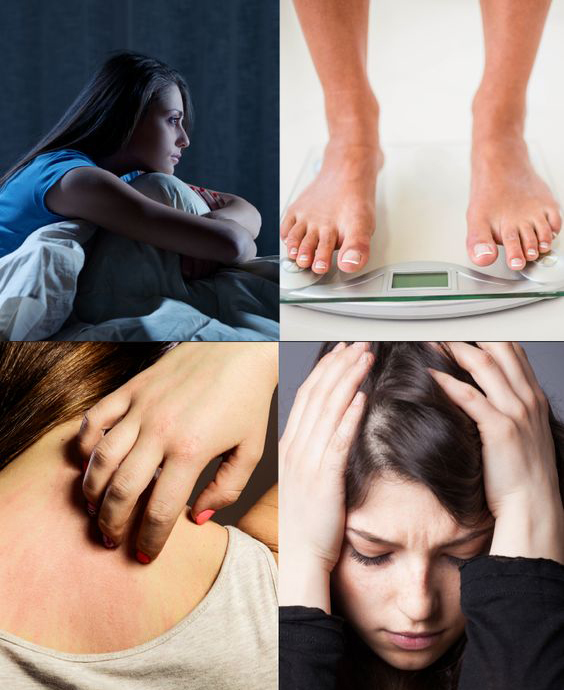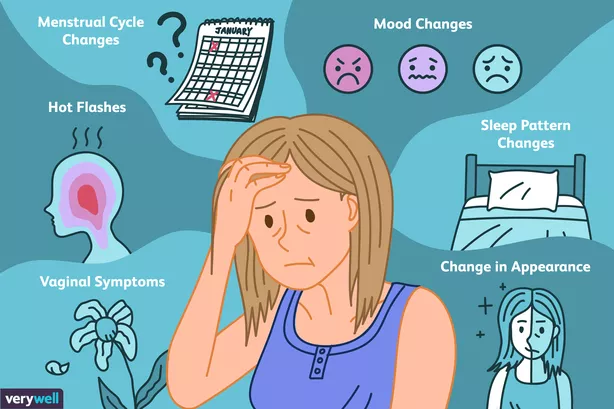Womanhood, Sexuality, Physical Complications, Emotion & Feelings
Menopause is the end of a woman’s menstrual cycles. It is the end of the reproductive years. Menopause usually happens after 12 months of a woman’s last period. Menopause is not a disease or disorder.
This time in a woman’s life is often full of other transitions and physical ones. For example, women are born with all of their eggs, which are stored in their ovaries. Their ovaries also produce oestrogen and progesterone, which regulate their menstrual cycle and egg production (ovulation).
Menopause occurs when the ovaries stop producing an egg each month and menstruation ceases. Menopause, which occurs after 45, is a natural aspect of ageing. However, some women may experience early menopause. It can be caused by surgery, such as when their ovaries are removed during a hysterectomy, or by damage to their ovaries caused by chemotherapy. It’s known as premature menopause if it occurs before the age of 40 for whatever cause.
Unfortunately, women of Bangladesh are silent about talking on this issue though this phase is experienced worldwide.
I interviewed some women who had already faced menopause while writing this article.

Tuba (pseudonym) had already entered menopause at the age of 45. Though she is experiencing numerous difficulties due to menopause, she is uncomfortable discussing the subject. As a result, I did not compel her to continue speaking. She has just stated that she is experiencing skin burning due to menopause. Additionally, she said that she had not taken any menopause preparations or treatments. She is only aware that women experience difficulties following menopause.
Saleha (pseudonym), age 55, experienced menopause when she was 50years old. She said, “I did not care about my feelings. But I feel suffocated all the time. It seems that it is feeling warmer than before. Sometimes she also faces anxiety all of a sudden. At the beginning of menopause, I was not aware of it, so I did not give attention to all of these difficulties. Suddenly I experienced ‘Osteoporosis’, & my spine has become curved. Previously I faced erosion of my bone, but it was not so problematic. After menopause, it became one of the most significant difficulties. ”
Additionally, she stated that because she is the senior member of her family, she did not feel comfortable discussing this subject with others. When she visited a doctor about the erosion of bone, the doctor explained that her bones had become weaker due to childbirth. It became more challenging as she approached menopause. She was unaware that menopause is associated with bone erosion.
The British Medical Bulletin, which Oxford University publishes, says that a woman experiences menopause of one-third of her life. The primary symptom of menopause is feeling warmer too much. However, some women also think that they feel relief after menopause.
Ruby(pseudonym), age 43, said that she feels great after menopause. She added that she does not have any further plan to conceive anymore. So, she does not want menstruation. She said she faced an adamant phase during menstruation as she experienced cramps, fatigue & heavy bleeding for 7days.
Keya (pseudonym), age 53, mother of two children, said that she experienced menopause When she was 40 years old. However, she said she felt relief after menopause.
Physical Complications During Menopause:
The women of Bangladesh experience Menopause at 51years on average, according to the Bangladesh Menopause society. Most women approaching menopause will experience hot flashes, sudden feelings of warmth that spread across the upper body, typically accompanied by blushing and sweating. These flashes can range from moderate to severe in most women. However, there are some primary symptoms that women experience.
For example, Periods are uneven or missed, dryness of the cervix, Breast pain, need to pee more frequently, insomnia, Emotional change, dryness of skin, eyes, or mouth.
Some symptoms are also seen during menopause. Like symptoms frequently include Fatigue, Depression, Crankiness, heart racing. Headaches, Aches and pains in the joints and muscles, Putting on weight, Hair thinning, Libido fluctuations (sex drive).
Hot Flashes: These are due to small blood vessels in your skin dilating, and you may also feel your heart race and become dizzy, sweaty and anxious. Hot flashes can occur as little as once a week or as often as every five minutes. They can be worse at night.
Low Libido: As levels of oestrogen decrease, your libido can take a nosedive. Your skin can become thinner and drier, which often results in vaginal dryness and painful intercourse
What Happens During Menopause and How Does It Affect?
Any form of medicinal or surgical treatment does not cause natural menopause. Instead, it’s a slow process with three stages:
Perimenopause: This stage normally starts a few years before menopause, when ovaries produce less oestrogen. Perimenopause lasts until menopause, when ovaries cease to produce eggs. Oestrogen levels diminish quicker in the latter 1 to 2 years of this stage. Menopause symptoms affect a large number of women.
Menopause: This is when anyone hasn’t had a period in a year. Ovaries have ceased to produce eggs and the majority of oestrogen.
Post menopause: The years following menopause are known as the postmenopausal years. Hot flashes and other menopausal symptoms usually subside. However, as one gets older, the health concerns associated with oestrogen deficiency rise.
What are the Causes of Premature Menopause?
Premature menopause might be caused by genes, immune system issues, or medical interventions. Other factors to consider are:
- Ovarian failure occurs too soon. Oestrogen and progesterone levels vary when ovaries cease producing eggs prematurely for unknown reasons. Premature ovarian failure occurs when this develops before the age of 40. However, unlike early menopause, premature ovarian failure isn’t usually permanent.
- Menopause has been artificially induced. When a doctor removes ovaries for medical reasons such as uterine cancer or endometriosis, this happens. It can also happen if ovaries are damaged by radiation or chemotherapy.
Sexuality & Menopause:
When a woman’s body goes through the menopausal transition, she may experience vaginal dryness. This can make sex uncomfortable. In addition, tightness of the vaginal entrance and burning, itching, and dryness may be shared by women (called vaginal atrophy).
Dyspareunia is the term used to describe pain experienced during the sexual engagement. Like other symptoms of the menopausal transition, dyspareunia may be modest and have no impact on a woman’s quality of life. However, some women suffer from severe dyspareunia, which precludes them from engaging in any sexual activity without suffering.
Romana (pseudonym), a school teacher from Gazipur said that she does not have the same feelings for sex after menopause. She also added that she previously felt something for fertility that she does not feel now. For example, when a woman has her periods, she feels fertility during that time. However, as she experienced menopause a long time ago, she does not feel anything now.
Most couple thinks that they face sexual problems after menopause. They think dryness of the vagina is responsible for that.
But specialists disagree with this statement. Instead, they think some women lose their interest in having sex.
Psychologist Dr. Mekhla Sarkar quoted, “Very few women think that their husband would not love them as before after menopause. They think their fertility will not be the same as before. For these reasons, they depressed after menopause.”
She also added, “Most women think the most important chapter of womanhood is being able to conceive, which is connected to menstruation. The sexuality of a woman is dependent on menstruation. So, they think they cannot perform better during sex after menopause.”
A woman is habituated with a physical condition for a long time. But she entered into a new phase of life when she experienced menopause. Some radical changes are seen in a body. However, very few women face difficulty adapting to these new changes.

